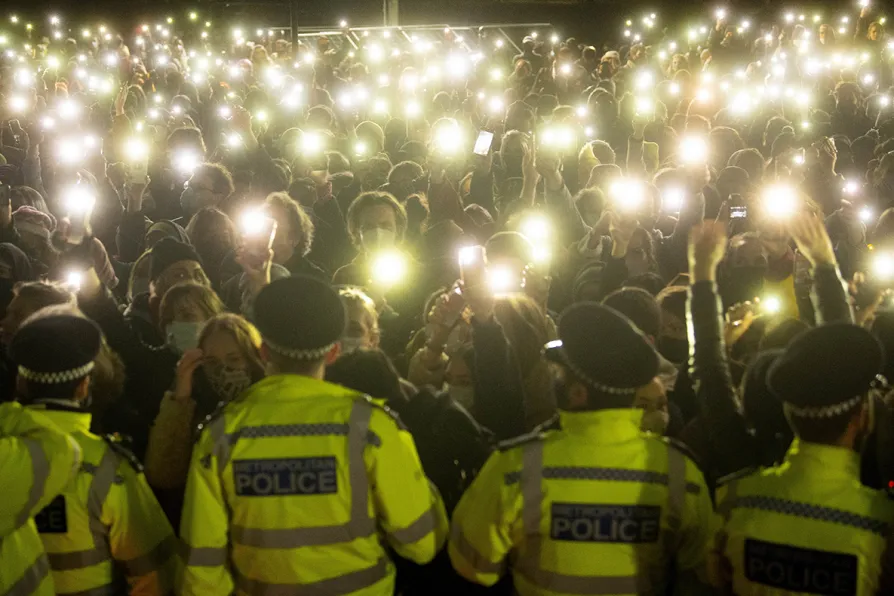Watchdog whitewash
Report denies cops at Clapham Common vigil were ‘heavy handed’

 People in the crowd turn on their phone torches in Clapham Common, London
People in the crowd turn on their phone torches in Clapham Common, London
A POLICE watchdog has been accused of rubber-stamping the Met’s “shameful” handling of the Clapham Common vigil by concluding that officers acted appropriately.
Home Secretary Priti Patel called for a report following widespread outrage at the Metropolitan Police’s handling of the vigil, during which female mourners were tackled to the ground and arrested.
The ugly scenes in south London followed the police’s decision to forcefully disperse the March 13 vigil in memory of Sarah Everard and other women lost to violence. Politicians described the scenes as “deeply disturbing” and “completely avoidable.”
Similar stories

The unnecessarily violent police intervention at a Quaker place of worship is a PR disaster and will only serve to deepen the chasm between them and the public. SYMON HILL reports













